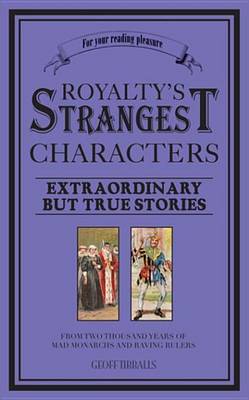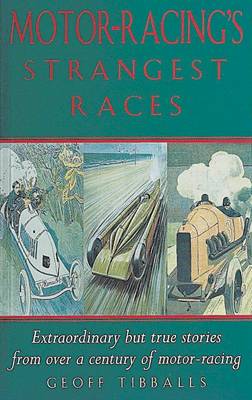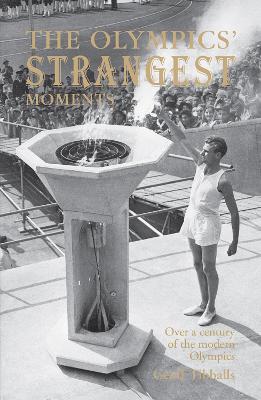The Strangest
3 total works
this unique look at the world's craziest kings and queens will leave you
shocked, amazed - and often in fits of laughter.
From the madness of ancient Rome, exemplified by the Emperor Caligula who
wanted to appoint his horse to the consulate, we go on to meet Charles VI of
France, convinced he was made of glass, Queen Juana of Spain, never
separated from her late husband's coffin, and King Otto of Bavaria, who tried to
ward off hereditary insanity by shooting a peasant a day.
Throughout history, royalty and scandal have gone hand-in-hand like a Prince of
Wales and his mistress - witness the pocket-picking Farouk I of Egypt, Augustus
II of Poland, who fathered an estimated 355 children, only one of whom was
legitimate, and, more recently, Britain's master of tact and diplomacy, Prince
Philip. From kleptomania and incest to transvestism and even pigeon fancying,
all these and many more colourful characters can be found in this revealing
trawl of the world's royal families.
In 1894, when the motley assortment of steam and petrol-powered vehicles lined up at the start of the trial from Paris to Rouen, motor-racing's colourful history was launched. Many of the pioneering events were death-defying, trans-continental marathons, in which the competitors were obliged to negotiate basic dirt tracks, muddy bogs, fast-flowing rivers, over-zealous policemen and a seemingly ednless supply of stray dogs. Barely contained in this new hardback edition are 80+ bizarre, brilliant and bonkers stories from over a century of motor racing. They include the Frenchman who drove 25 miles in reverse; the Grand Prix where the leading drivers were so far ahead that they stopped for a meal in the pits; the Le Mans 24-hour race won by a car patched up with chewing gum; and the driver who drunk six bottles of champagne on the way to winning the Indianapolis 500.
Word count: 45,000
The Olympics’ Strangest Moments recounts the bizarre, controversial, inept, heroic and plain unlucky from the first modern games in 1896 to the return of the games to their birthplace in Athens in 2004 and up to the Beijing 2008 games. The world’s greatest sporting occasion has been packed with unusual occurrences as well as creating unlikely heroes such as Dorando Pietri, who missed out on marathon gold after being helped over the finish line by over-anxious officials, and ''Eric the Eel'' from Equatorial Guinea who was acknowledged as the slowest swimmer in the history of the games.


